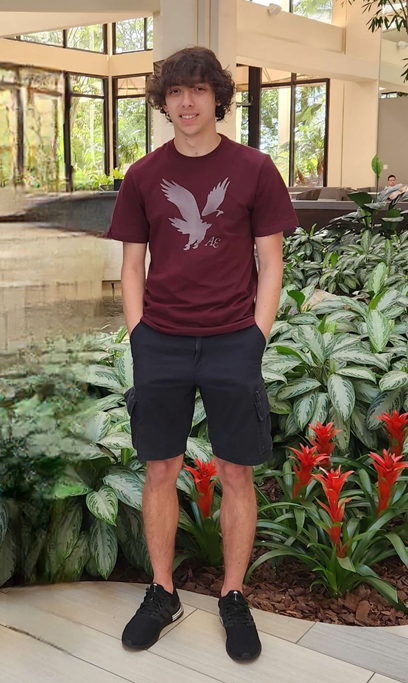It is the dream of every author to write a book they can proudly stand behind. I got to engage with the writing of unfamiliar authors and my talented peers and was inspired by the craft and creativity of both.
This project covered styles of writing, tones, and perspectives that were completely out of my comfort zone. While writing this story and going to school, I was constantly gaining new ideas and my own writing style kept shifting with every new literary influence.
There were many times, even towards the end of the project, where the stories became creatures I didn’t know how to interact with anymore. I’d become a different writer, and what I’d written only months before became wholly unrecognizable, the work of a stranger. This was especially the case with “The Lockbox,” being the bigger monster of the two pieces. From its inception, “The Lockbox” was already unlike anything I’d ever written before. In the class where the idea sprung, we were reading authors that I was exploring for the first time.
There was this constant fear that I was too inexperienced as a writer, with too limited a world view, to be attempting to tackle the serious themes I was handling. But throughout my final semester, I got to listen to lectures from professional writers, and their words greatly encouraged me. One writer in particular, Robert Jones Jr., mentioned that part of being a writer is accepting that you’re a better writer today than you were yesterday, and you’ll be an even better writer tomorrow than you are today.
Suffice it to say, I’m a completely different writer now than I was when I wrote these stories a year ago. So long as I’m alive, learning and writing, the stories I create will never truly end within the pages they’re contained. But that collection of pages represents the place I was in at that time, the concepts I wanted to explore, and how I may have interpreted and challenged various facets of the world around me.




